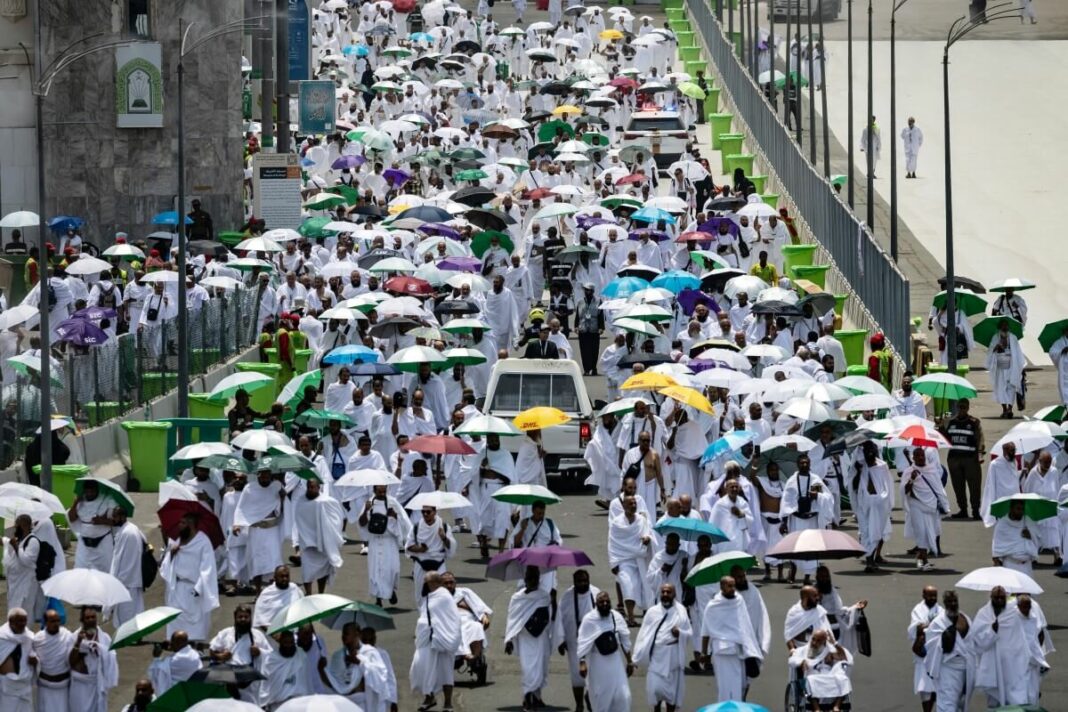Family members and acquaintances of senior officials at Turkey’s Directorate of Religious Affairs (Diyanet), including its chairman, Ali Erbaş, travelled to Saudi Arabia on a special visa that does not require them to be successful in a public drawing to perform the Hajj pilgrimage while more than 2 million others wait for a spot, the Birgün daily reported on Tuesday.
The Hajj pilgrimage to Saudi Arabia is a religious obligation for Muslims who must take the journey at least once in their lifetime, provided they are financially and physically able to do so.
Due to the overwhelming number of pilgrims visiting every year, Saudi Arabia imposes quotas for every country.
For instance, it allowed 83,430 pilgrims from Turkey in this year’s Hajj in June, who were selected through a drawing held by the Diyanet from among more than 2.4 million applicants.
According to Birgün, Ali Erbaş’s wife, Seher Erbaş, Diyanet vice president Huriye Martı’s husband, Ali İhsan Martı, and İsmail Karagöz, dean of the faculty of theology at Düzce University, are among several dozen people who travelled to Saudi Arabia with the special visa, some more than once, to perform the Hajj pilgrimage without participating in the drawing.
Birgün also reported, citing Diyanet sources, that the senior officials stayed with their spouses for a month during the Hajj season in rooms allocated to them at the Office of the Attaché for Religious Services and Hotel Dar Al Hadi, a Diyanet center in Mecca.
For each day of their stay, the officials were paid per diem from the fees charged to Turkish pilgrims.
Diyanet sources said the practice makes pilgrimage less of an act of worship and more of a “luxury vacation” for the family members of senior directorate officials.
As with all government institutions, the Diyanet underwent major purges of non-loyalist employees following a failed coup in July 2016.
The Diyanet, which benefits from a bigger budget than most government agencies and operates a sizable network of mosques around the world, spent TL 46.7 billion ($1.4 billion) in the first six months of 2024, an increase of 137.3 percent over the same period last year, according to official figures.
These mosques and foundations have been accused of acting as President Recep Tayyip Erdoğan’s propaganda mouthpieces and involvement in spying on his critics. Through its foundation, the Diyanet provides funding and appoints imams, who are public servants on the government payroll, to the mosques.



